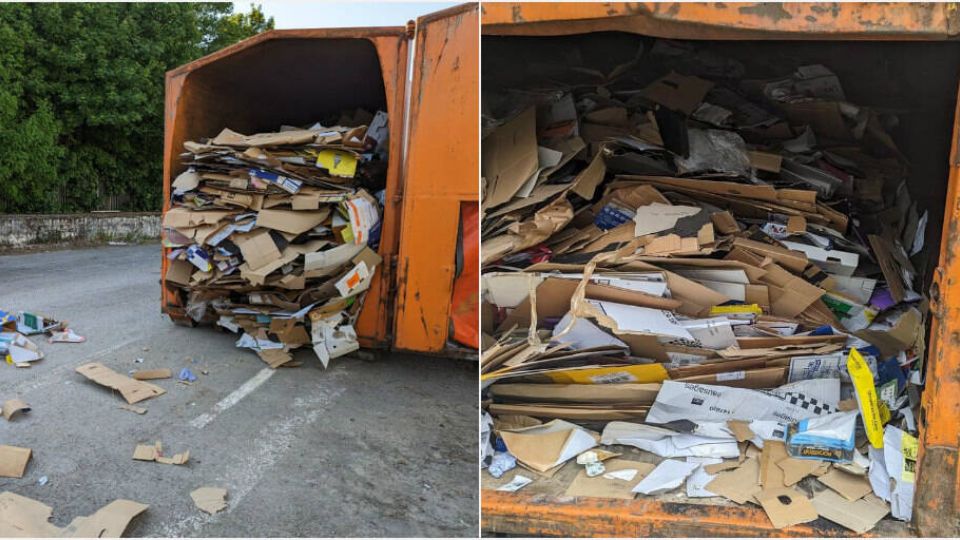
Inside a busy Liverpool warehouse, workers were going about their daily routine when a sound broke through the noise of machines.
At first, it was faint — a fragile, trembling meow that seemed too soft to be real. But as they paused and listened closer, the cries grew sharper, echoing from inside a recycling compressor stuffed with cardboard. Shock spread across the staff.
They knew right away that a life was trapped inside and needed help.
Cries From the Cardboard
The employees didn’t waste a second. They reached out to the RSPCA, desperate for experts who could handle such a dangerous situation.
Inspector Vicki Brooks soon arrived and began carefully examining the container. As she crouched to the side, she noticed something that made her heart sink — a pair of frightened eyes staring back through a tiny opening.
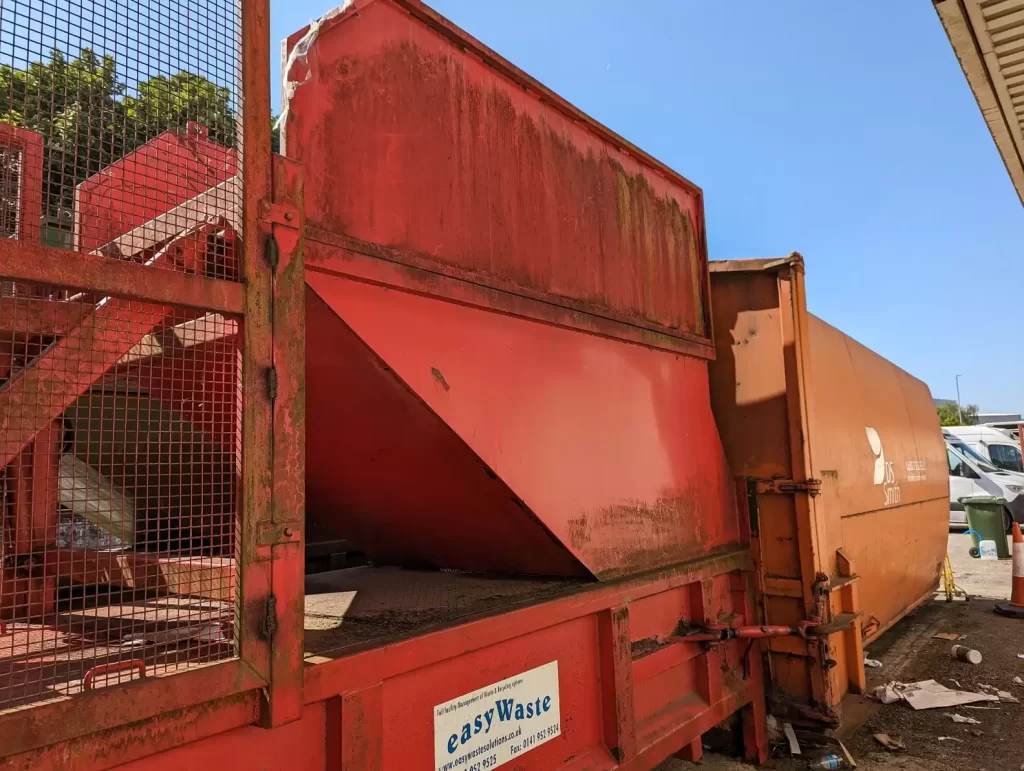
A mother cat had forced her head through the narrow space, her body hidden among the tightly pressed boxes.
Somewhere behind her, a newborn kitten’s cries echoed, pleading to be saved.
It became clear that the cat had crawled inside the container to give birth, only to be sealed in when more cardboard was thrown on top.
For days, the little family had endured suffocating heat, no water, and little air. The mother was exhausted, yet she had not abandoned her baby.
She stayed pressed against him in the dark, doing everything she could to keep him alive.
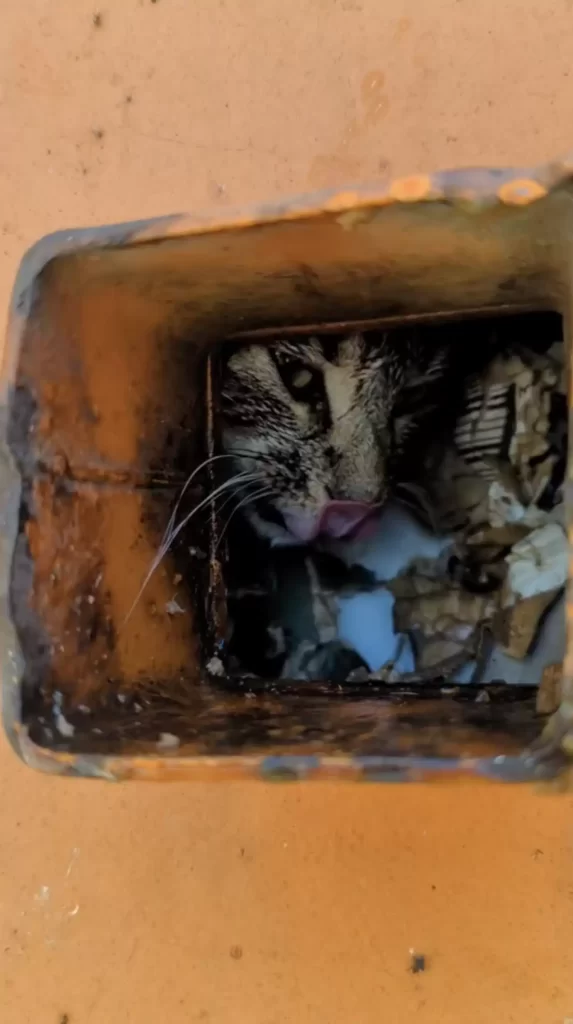
A Battle Against Time
Freeing them was far more complicated than anyone expected.
Warehouse employees joined forces with Brooks, pulling apart sections of the machine while cautiously removing layers of cardboard. The process was slow and exhausting.
Each piece that shifted threatened to crush the cats trapped inside, so every move had to be deliberate and careful.
Through the small hole, the rescuers were able to push small amounts of food toward the mother. Starving and weak, she ate quickly, then returned to shielding her kitten with her body.
Hours passed, and the team continued their struggle in the sweltering air.
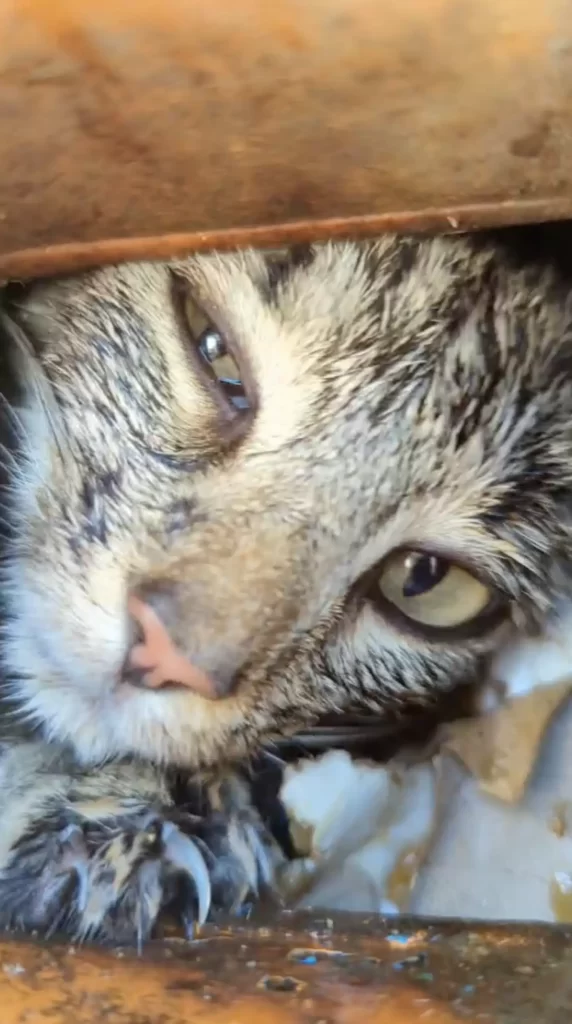
Brooks later admitted that in her twenty-one years with the RSPCA, she had never faced a rescue this intense.
She described the scene as unbearable — cardboard stacked tightly to the ceiling, little to no space for breathing, and temperatures rising dangerously high.
Despite their best efforts, the rescuers were forced to pause when darkness fell. They had worked through the entire day without rest, but the danger of continuing in poor light was too great.
They made the difficult choice to stop and return in the morning.
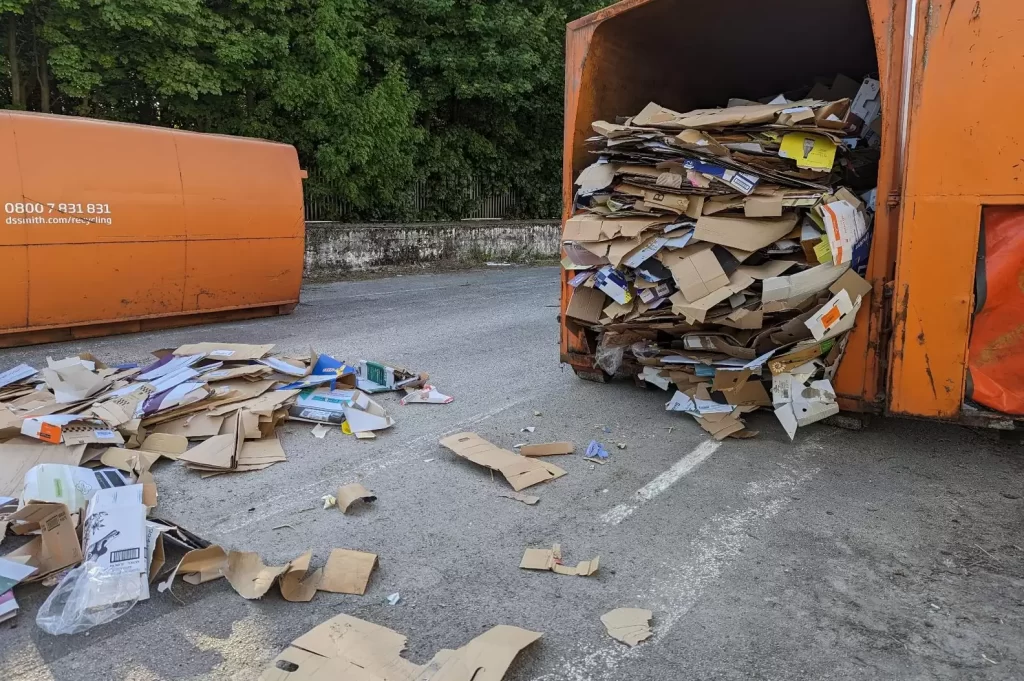
By then, however, something incredible had happened. The mother cat, using the opening created during the rescue attempt, had squeezed her way out and vanished into the night.
She had fought tirelessly, and now she was finally free — but her kitten was still imprisoned within the mountain of cardboard.
The discovery was bittersweet. Relief that the mother had survived mixed with worry for the tiny kitten left behind. The team refused to give up.
They came back determined, ready to do whatever it took to reach him.
A Kitten Called Biff
The following morning, the effort resumed. Piece by piece, the rescuers worked through the stubborn layers of cardboard, determined to find the faint cries that had not stopped since the ordeal began.
Finally, after careful maneuvering and endless patience, a small bundle of fur was uncovered. The tiny kitten was trembling, his meows still ringing with desperation.
The rescuers lifted him gently into safety, and for the first time, the danger was over.
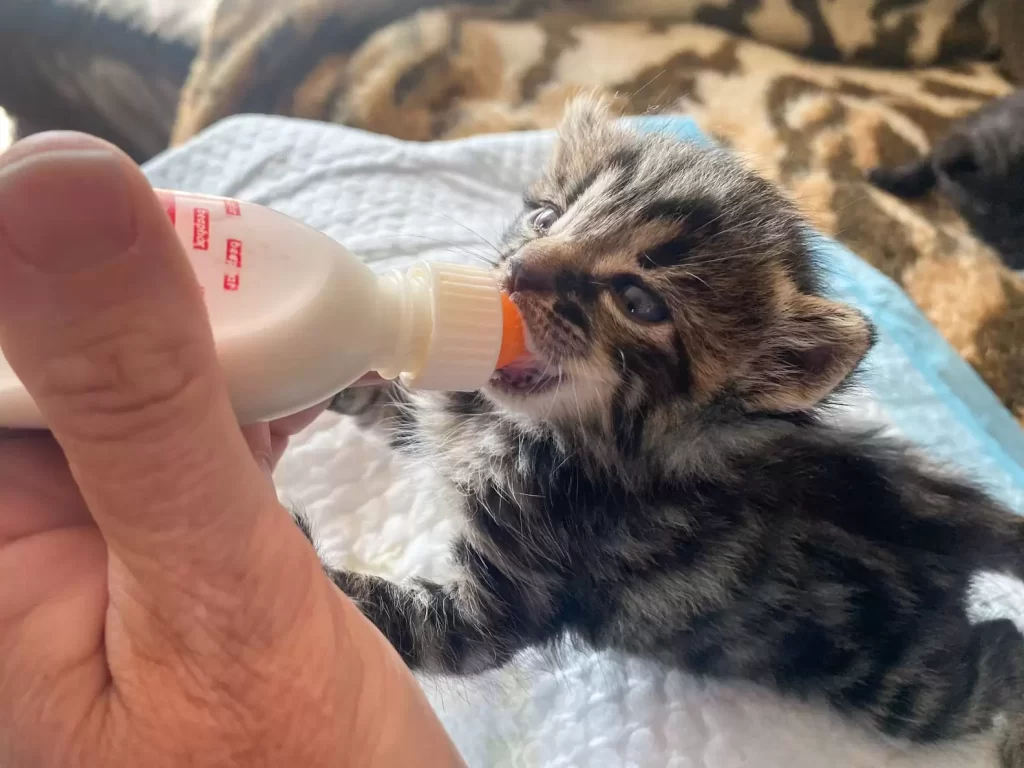
They named the brave survivor Biff, a tribute to the strength he showed in refusing to stay silent.
Although his mother had escaped before they could bring her to safety, the RSPCA vowed not to abandon her.
Plans were set in motion to work with other charities to locate and trap her, ensuring she too would get the care she desperately needed.
In the meantime, Biff was not left alone. He joined two other orphaned kittens, Chip and Kipper, in foster care.
Surrounded by warmth, gentle hands, and regular meals, his world changed completely.
The tiny cat who once cried out from a mountain of cardboard now had soft blankets, playful companions, and humans who would never stop protecting him.
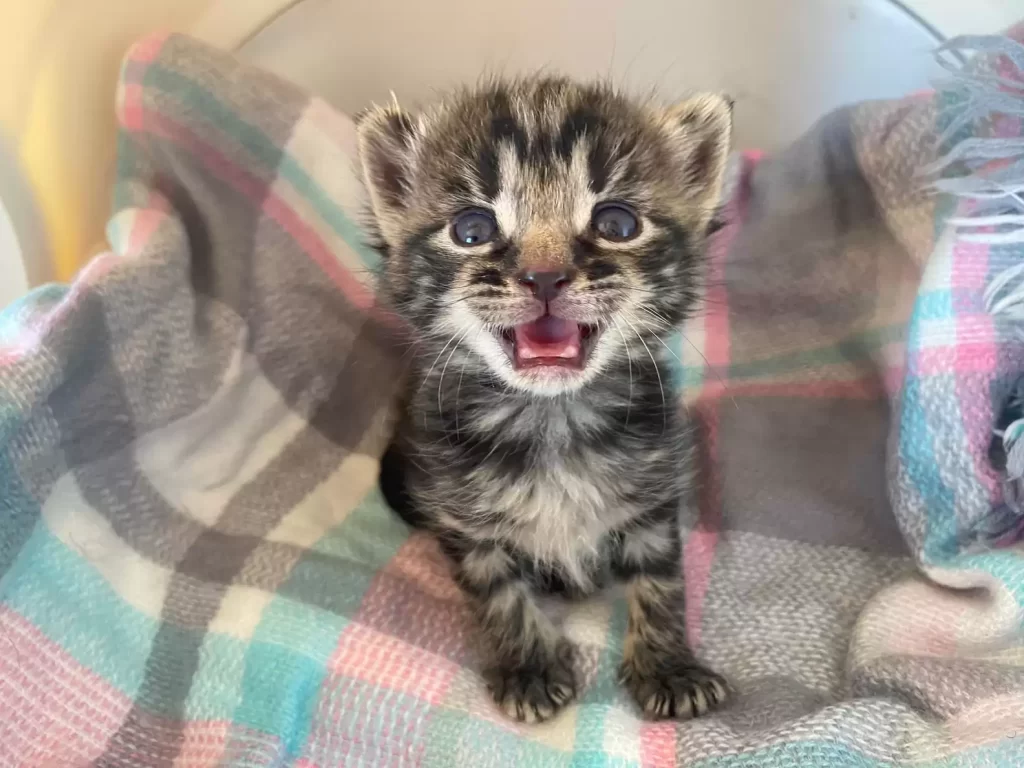
Biff’s survival is more than luck. It is a reminder of the courage animals show even in impossible situations and the compassion of people who refuse to turn away.
His cries could easily have been ignored, lost among the warehouse noise. Instead, they sparked a rescue that saved his life.
Today, Biff is safe, cherished, and growing stronger each day. His story proves that even the smallest voice can lead to hope, and sometimes, hope is all it takes to bring a miracle to life.
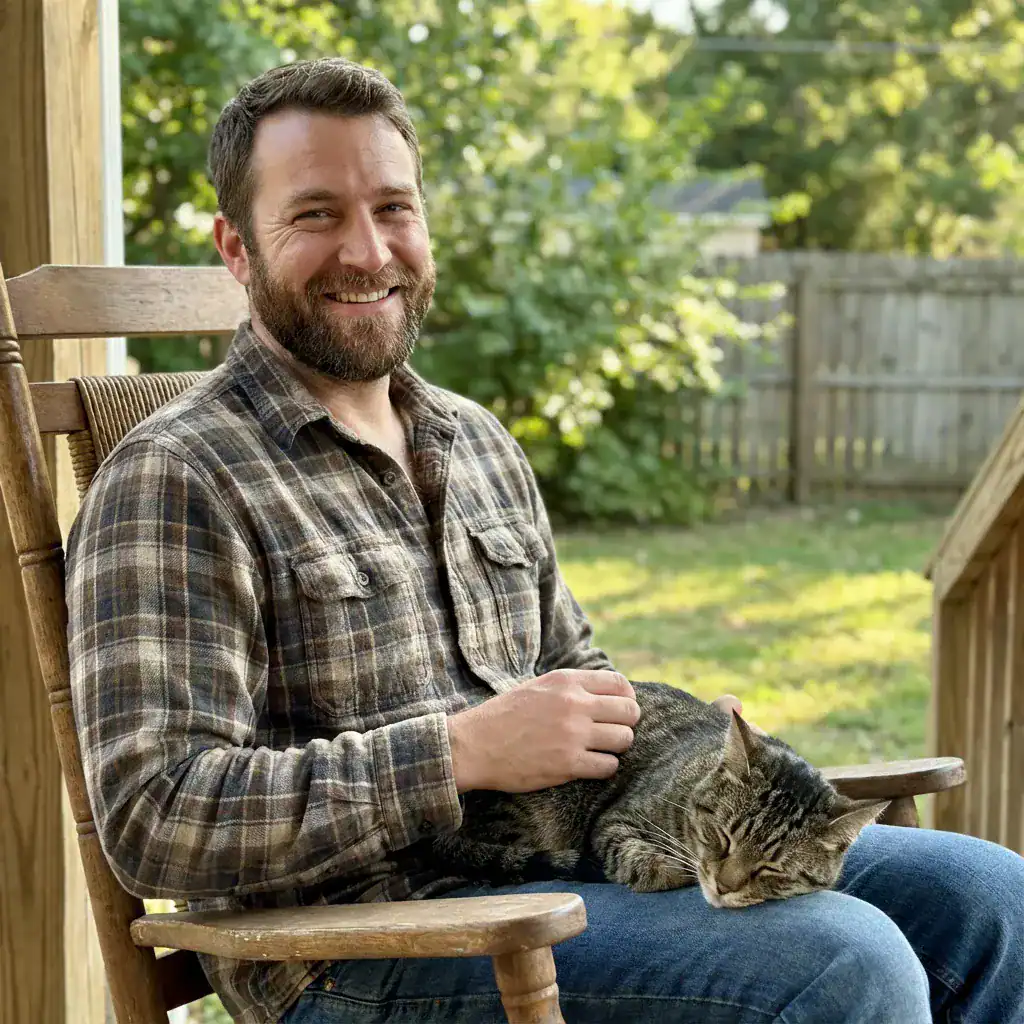
I’m Chris, a lifelong cat lover and rescue advocate based in Austin, Texas. What started with one scruffy shelter cat ten years ago turned into a mission — sharing the stories of cats who got their second chance. I believe every rescue cat has a tale worth telling, and I’m here to tell them. When I’m not writing, I’m probably being ignored by my own three rescues
